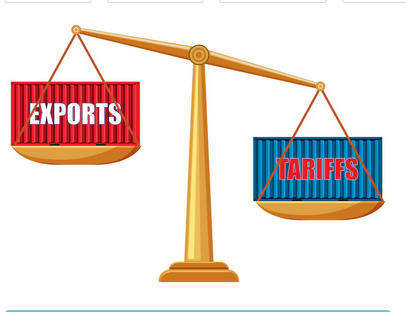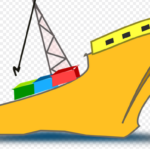Beijing’s new 125% tax on US imports has comes as a retaliation to an increased in duty by President Donald Trump. This has reflected in the changes in the financial markets all around the world.
Tariff Hike Schedule and Economic Response
The two countries’ tariff increase represents an incremental step in ongoing trade negotiations. China’s Ministry of Finance said the US tariffs were “coercion and unilateral bullying.” This has, in turn, seen much more movement of economic indicators (also globally) in response. Could we expect a yield (bond): stronger, a weaker dollar, and gold at a record high? The yield on benchmark 10-year US Treasuries climbed by the most in a week since 2001.
Statements from Officials
President Trump tweeted about the activity in the market and that the dollar ought to be strong because countries will be speaking to the US. Those 10% tariffs were the lowest common denominator in these discussions, he added. Karoline Leavitt — a White House press secretary — warned that if China keeps retaliating, it will “not be in China’s interests.” China will not be “bullied” by the United States, said Chinese embassy spokesman Liu Pengyu, and he said that if the United States wanted to talk, then it should abandon its “disruptive behaviour.”
A US consumer sentiment survey showed anxiety regarding inflation soaring to its highest since 1981. Banks are also witnessing a growing potential for a recession. The Consumer Sentiment Index from the University of Michigan decreased to 50.8 this month from 57.0 last month, below expectations. The survey also seemed to show waning confidence among Republicans who identified themselves as Republicans. Consumer inflation expectations for the median over 12 months ahead were likewise 6.7% — a new record since 1981, up from 5.0% in the previous month.
The state of trade and what this signal for the future
In two-way trade that has already been hit with tariff hikes, some UBS analysts also see a silver lining in the conflict, estimating the exchange between the world’s two biggest economies can be cut by as much as 33 percent. China and the European Union should ‘jointly stand against the unilateral behaviour of bullying’. Earlier, Chinese President Xi Jinping told in the summit that China and the European Union should ‘jointly stand against the unilateral behaviour of bullying.” President Trump floated the prospect of a deal with China. Still, there was no talk of trade policy changes on either side. Sectors of imported goods were expected to increase prices between 10 and 30% due to the tariffs, according to the reports.






